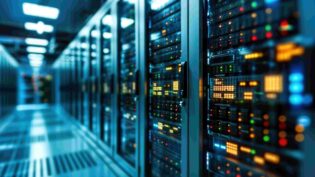
Data science is one of the most dynamic and lucrative fields in the world right now. Data scientists use technical (programming) and statistical methods of data analysis to derive useful insights in solving problems for their companies. Since this kind of problem-solving through data analysis is relevant for most industries, data scientists are always in demand and have great career prospects.
The steep demand is also because data science is a complex interdisciplinary field that can be difficult to get into and generally requires a college degree, which can be competitive, expensive, and time consuming.
Thanks to the rise of alternative modes of education like online bootcamps, interested people can learn data science skills more quickly than they would through a traditional college degree, and at the same time, get to work on professional projects that would let them apply their skills as they learn.
Not only that, but digital ways of learning are constantly undergoing developments that maximize value and minimize the wastage of time and effort. In that regard, the most recent and disruptive development has been the use of AI for automating learning experiences.
Artificial intelligence has enabled the personalization of learning plans to suit each learner’s unique needs. These systems analyze the student’s strengths and weaknesses and learning styles and adjust the content accordingly.
In addition, AI-enabled adaptive learning can provide feedback in real-time and help students test their knowledge. These developments are exciting for data science students and new people looking to get into the field, since AI for data science bootcamps has made the learning experience much smoother.
The Current State of Data Science Bootcamps
Conventionally, to become a data scientist, you’ll need a bachelor’s degree in computer science or other related fields like statistics or mathematics. This would take 4 years and cost anywhere between $15k to $30k.
Even then, traditional learning environments like universities are often slow to adapt to the rapid changes in the tech world and may offer generic or fixed curricula. This may leave students with the inability to apply their learning into real world contexts and put them at a disadvantage in the job market.
Bootcamps have helped address some of the above-mentioned issues by providing short but intensive learning courses that give learners the flexibility to plan their learning as per their styles and schedules. They also provide very structured and systematic learning plans that help learners stay motivated and on track.
Further, online bootcamps expose these learners to challenging and realistic problems that they can solve by using their new skills. Most bootcamps also partner with prominent companies in the industry to offer job placements to candidates who complete the courses.
The Role of AI in Enhancing Learning Experiences
Using AI for automating learning experiences in data science bootcamps can accelerate learning in various ways:
Flexibility and Control on the Horizon: Since data science is an interdisciplinary field, it can attract people from diverse backgrounds, each of whom will require support in different topics. Online education, empowered by AI, could grant data science learners unprecedented flexibility to set their own pace.
In this hypothetical scenario, a data science professional could delve into advanced topics like deep learning at their preferred speed, allowing for a more personalized and adaptive learning journey. Further, these AI systems can also provide recommendations to enhance the pace over time.
Tailored Learning Paths: AI algorithms can swiftly process and curate the most relevant educational materials tailored to the unique needs of each data science learner. For instance, an AI-driven adaptive learning program could assess a student’s strengths and weaknesses in statistical modeling and create a personalized plan that focuses more on addressing these gaps.
What’s more, technology also enables them to learn using their preferred styles, with options to explore visual and auditory styles of learning, among others. This also boosts the accessibility of these educational programs for people with disabilities.
Real-Time Feedback Mechanisms: The introduction of AI-driven systems can provide real-time feedback in data science bootcamps. Imagine a scenario where an AI tool instantly evaluates a student’s code for a machine learning project, offering constructive feedback on optimization techniques, or suggesting alternative algorithms, thereby enhancing the learning process.
Moreover, this process of providing feedback is also becoming more and more conversational, to the point that we are already looking at the prospect of virtual mentors and tutors in online courses.
Encouraging Technological Proficiency: Since online learning in data science, driven by AI, requires the use of technology, these programs will also help enhance learners’ tech skills and introduce them to new tools.
Imagine an AI-based data science course that not only teaches coding but also provides hands-on experience with the latest data science libraries and frameworks, making tech skills more accessible to aspiring data scientists.
Cost and Time Efficiency: The potential automation enabled by AI in data science bootcamps could also reduce material costs and enhance efficiency. We’re looking at a future where an AI-powered data science curriculum dynamically adjusts based on industry trends, ensuring that learners focus on the most relevant and cutting-edge technologies within a shorter timeframe.
For data scientists, this also means being able to leverage AI to analyze unstructured data way more quickly and accurately by cutting down on manual tasks, optimizing processes, and offering various tools for analysis.
Professional Growth and Career Prospects: If AI’s role in rapidly developing educational materials and designing courses becomes a reality in data science bootcamps, professionals could potentially accelerate their learning process.
An AI-driven data science bootcamp can offer real-world projects, allowing learners to apply their skills to industry-relevant problems, thus preparing them for more challenging and rewarding positions in the field.
Gamification and engagement: Gamification is also a great way in which we can increase engagement by using AI for data science bootcamps. Elements like interactive goal tracking, badges and achievements for progress made, leaderboards, and simulation games can create a more enabling learning environment.
Envisaging the accessibility of learning programs from around the world through AI-driven data science bootcamps also creates the possibility of participating in collaborative AI-driven projects with data scientists from different continents, providing diverse perspectives and enriching the global data science community.
In conclusion, data science is a rich interdisciplinary field that holds immense opportunities for both professionals and companies. Thanks to online education, particularly data science bootcamps, learning data science skills has become more accessible. In addition, AI-driven automation can significantly enhance the learning experience in these courses.
While these AI-based changes are still works in progress and quite experimental, the potential they hold could reshape the data science learning landscape, offering opportunities for a more personalized, flexible, and efficient educational experience tailored specifically to meet the needs of aspiring data scientists and working professionals in the field.
996 Views













